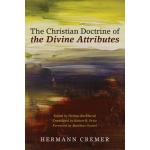Why “Panentheism” Is False
What’s Wrong with Panentheism?
Panentheism is a relatively recent term, if not concept, in Christian theology and philosophy of religion. Scholars agree that it was coined by German philosophical theologian Karl Friedrich Krause (1781-1832) who invented the German word Allingottlehre which literally means “the doctrine that all is in God.” Of course, Krause was not the first person to promote the idea. (See John W. Cooper, Panentheism: The Other God of the Philosophers [Baker, 2006], 121-122.)
Krause meant more than merely that “all is in God, however.” That can be interpreted in multiple ways and might even fit Paul’s statement in Athens. According to John Cooper, Krause believed “the distinction between God and the world is that of whole and part.” (122) Exactly what Krause meant by panentheism is debatable, but the concept took on a life of its own, apart from whatever Krause meant, in philosophers such as G. W. F. Hegel who famously asserted that “Without the world God is not God.”
Hegel is usually thought to have been the paradigmatic panentheist of the 19th century, but Alfred North Whitehead is usually considered that of the 20th century. Whitehead, of course, was the philosopher-mathematician who is the inspiration behind process theology. Whitehead said that “It is as true to say that God creates the world as that the world creates God.”
A consensus used to exist that panentheism is any view of the God-world relationship that portrays God and the world as essentially interdependent although God’s essence is not contributed by the world. One of the first whole books exploring the concept was Philosophers Speak of God by Charles Hartshorne and William Reese (University of Chicago Press, 1953). They defined panentheism as any view in which “To be himself [God] does not this universe, but only a universe.” (22) They asserted that, at the very least, panentheism denies creation ex nihilo (23).
So, traditional, classical panentheism distinguishes between God’s essence, his eternal being, and his experience. God’s essence, his thatness and whatness are his independent of the world, but his actual experience is given to him by the world. Many panentheists have used the body-soul or body-mind analogy to describe the God-world relationship in traditional, classical panentheism. The world (universe, cosmos) is God’s body.
I came to think that what distinguishes panentheism, in its German idealist (Hegelian) form and in its process (Whiteheadian) form, from traditional Christian theism (in its broadest form) is the doctrine of creation ex nihilo. In other words, I have no problem believing that God actually experiences the world such that there is a sense in which the world is “in” God. That’s how I interpret Paul’s statement in Athens. Also, I believe Paul meant that the world is dependent on God for its existence from moment to moment.
The crucial difference between traditional, classical panentheism and Christian theism, broadly interpreted (i.e., not necessarily as defined by Augustine or Anselm or Aquinas), is God’s dependence on the world. Panentheism traditionally affirms it; all forms of classical Christian theism deny it. Creation ex nihilo is the crucial doctrine that protects Christian theism from making God essentially dependent on the world.
Why is it important to deny God’s dependence on the world? Traditionally Christian theologians have said “to protect the transcendence of God.” Fine. But why? The bedrock reason is, as I have stated and argued here before, that “whatever is of nature cannot be of grace.” Christianity is not a philosophy; it is a message of grace. If God’s creation and redemption of the world is not free, then it is not of grace. Only that which is freely done is truly gracious. That’s a bedrock principle of theology. When someone disputes it, I frankly don’t know what they mean by “grace.”
Notice that in Acts 17, during his speech in Athens, Paul not only quotes the Greek poet but also asserts that “God who made the world and everything in it, he who is Lord of heaven and earth, does not live in shrines made by human hands, nor is he served by human hands, as though he needed anything, since he himself gives to all mortals life and breath and all things.” (vs. 24, 25) That has to be kept in balance with “in whom we live and move and have our being.”
So, the problem with traditional, classical panentheism, as expressed in the philosophies of Hegel and Whitehead (and their many followers), is that it seriously blurs the line between God and the world with the result that God’s creation and redemption of the world are not free and gracious acts but necessities for God. In saving the world God is somehow saving himself. And concepts like “create” and “save” don’t even mean the same in traditional, classical panentheism as in classical theism (broadly defined).
Having said all that, I must admit that the term “panentheism” is undergoing change in contemporary theology. Like all theological concepts, over time it is being stretched to cover much more than it meant under the influences of Hegel and Whitehead (et al.).
A relatively recent study of panentheism illustrates this: In Whom We Live and Move and Have Our Being: Panentheistic Reflections on God’s Presence in a Scientific World edited by Philip Clayton (we studied together under Pannenberg in the 1980s) and Arthur Peacocke (Eerdmans, 2004). Especially helpful is the chapter “Three Varieties of Panentheism” by Niels Henrik Gregersen (19-35).
I won’t go into the details here, now. I have submitted an article about this change in the meaning of panentheism to a theological journal. If it is published I will alert my blog readers to it.
Essentially, what is happening, is that some Christian theologians are adopting the term “panentheism” and adapting it to a more classical theistic view of the God-world relationship. Gregersen talks about “Christian panentheism” by which he means a view in which God’s experience is contributed at least partly by the world and what happens in it while God is himself not essentially dependent on the world. In other words, God freely chooses to include the world in his life. A good example is Juergen Moltmann who explicitly labels his theology panentheistic in several of his writings (“trinitarian panentheism,” “eschatological panentheism”). Many other relatively conservative Christian theologians, including some evangelicals, are calling their theologies panentheistic, but they don’t mean in the Krause, Hegel or Whitehead sense. They seem to mean only that the God-world relationship is ontologically real, not merely external to God. God freely (he could have done otherwise) creates the world and experiences it such that he is not the same with the world as he was or would be without it. And yet he does not literally “need” it to be who and what he is.
The analogy of parenthood comes to mind. In this panentheism, God is like a parent who freely chooses to have a child but, once the child is born or adopted, the child is part of his or her life. The parent is not the same as before. And yet, should the child die, the parent would still be the person he or she was even if changed. (This is only an analogy, of course, so please don’t pick it to death because it’s not perfect.)
My concern is whether this is stretching “panentheism” too far. It seems to me to lose all shape, so to speak, unless it is kept closely tied to the rejection of creation ex nihilo and affirmation of the idea of God’s essential dependence on at least some world. I fear that, like many theological concepts, panentheism is losing meaning. In light of this broadening of its meaning to cover new ideas not traditionally meant by it, I suspect the candidate for the position teaching theology who was rejected by the evangelical president may have been treated unfairly. He may have only meant what Gregersen means by “Christian panentheism” which is compatible with creation ex nihilo.
I personally do not consider any theology that affirms creation ex nihilo panentheistic. That doesn’t mean affirming it makes everything correct; a person might affirm creation ex nihilo and be profoundly wrong about something else in his or her doctrine of God. But, it seems to me that creation ex nihilo is minimally necessary for a robust biblically and theologically sound doctrine of God. Traditionally, classically, it is one major factor dividing Christian theism from panentheism (or even pantheism).
*Note: If you choose to comment, make sure your comment is relatively brief (no more than 100 words), on topic, addressed to me, civil and respectful (not hostile or argumentative), and devoid of pictures or links.*













